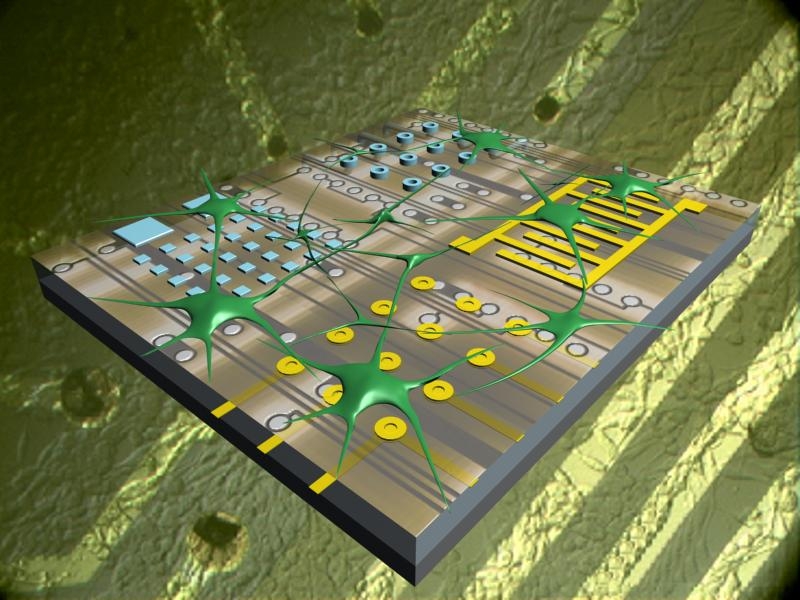作者: Liu, Qingjun; Wu, Chunsheng; Cai, Hua; 等.
来源:CHEMICAL REVIEWS 卷: 114 期: 12 页: 6423-6461 出版年: JUN. 2014
Cell-based biosensors combine the living cells and sensors or transducers for cellular physiological parameter detection, pharmaceutical effect analysis, environmental toxicity test, etc. In contrast to molecule-based approaches, cell-based biosensors have a broad spectrum of detecting capabilities. Moreover, in addition to analyte sensing and detecting, cell-based biosensors can provide the advantages of rapid and sensitive analysis for in-situ monitoring with cells. This review systematically discussed cell-based biosensor theories, technologies, and developments. It combined descriptions of microelectronics and information technology with chemical and biological fundamentals to introduce the novel principles and applications of cell-based biosensors. The review also provided a topical description of the research progress of cell-based biosensors over the past two decades. In addition, many innovative applications of cell-based biosensors, in areas such as biomedicine, were detailed. The principles, developments, and typical applications of microelectrode array (MEA), electrical cell impedance sensing (ECIS), field effect transistor (FET), light-addressable potentiometric sensors (LAPS), patch clamp chips, quartz crystal microbalance (QCM), and surface plasmon resonance (SPR) were introduced and discussed in detail with concluding points and future prospects. Some emerging technologies involve combining cell-based biosensors with up-to-date technologies in science and engineering were discussed in detail, including the use of nanotechnology, microelectronics, and molecular biology to fabricate the integrated, intelligent, and bio-inspired biosensors used for cellomics studies.





